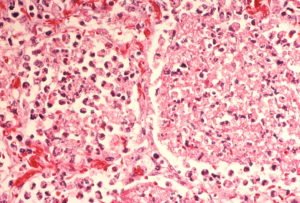Legionella
15-point plan for reducing the risk from Legionella in tourist accommodation
More than a thousand travellers contract Legionnaires disease each year according to European statistics. Public Health England released official statistics that showed travel associated Legionnaires disease accounted for approximately 43% of all confirmed cases reported in England and Wales from 2014-2016.
To decrease the likelihood of holidaymakers transmitting the disease, The European Centre for Disease Prevention (ECDC) published a leaflet in 2017 specifically for tourist accommodations including hotels, apartments and camping sites.
15-point plan for reducing the risk from Legionella
With the Easter break approaching, hoteliers and other accommodation owners are recommended to follow the 15-point plan for reducing the risk from Legionella, according to Water Hygiene Centre Authorising Engineer Philip Lonsdale.
- Have one named person responsible for Legionella control.

- Ensure the named person has sufficient training and experience to be able to carry out the role competently and other staff are trained to be aware of the importance of their role in controlling Legionella.
- Keep hot water hot and circulating at all times: 50°C – 60°C (too hot to put hands into for more than a few seconds) throughout the entire hot water system. ECDC HEALTH INFORMATION Legionnaires’ disease for managers of tourist accommodation 3.
- Keep cold water cold at all times. It should be maintained at temperatures below 20°C throughout the system to all outlets (this may not be possible when the ambient temperature is high, but every effort should be made to ensure that cold water entering the premises and in storage remains as cold as possible).
- Run all taps and showers in guest rooms and other areas for several minutes to draw through water (until it reaches the temperatures stated in points three and four) at least once a week if rooms are unoccupied, and always prior to occupation.
- Keep shower heads and taps clean and free from scale.
- Clean and disinfect cooling towers and associated pipes used in air conditioning systems regularly – at least twice per year.
- Clean, drain and disinfect water heaters (calorifiers) once per year.
- Disinfect the hot water system with high level (50mg/l) chlorine for 2–4 hours after work on the system and water heaters and before the beginning of every season.
- Clean and disinfect all water filters regularly, as directed by the manufacturer, at least every one to three months.

- Inspect water storage tanks, cooling towers and visible pipe work monthly. Ensure that all coverings are intact and firmly in place.
- Inspect the inside of cold water tanks at least once per year and disinfect with 50mg/l chlorine and clean if containing a deposit or otherwise dirty
- Ensure that when carrying out system modifications or new installations they do not create pipework with intermittent or no water flow, and disinfect the system following any work.
- If there is a spa pool (also known as whirlpool spas, ‘Jacuzzis’, spa baths), ensure that: − it is continuously treated with 2–3mg/l chlorine or bromine and the levels and pH are monitored at least three times per day; − at least half of the water is replaced each day; − sand filters are backwashed daily; − the whole system is cleaned and disinfected once per week.
- Keep daily records of all water treatment readings, such as temperature, pH and chlorine concentrations and ensure they are checked regularly by the manager.
Further advice about specific controls should be sought from experts in this field. They can carry out a full risk assessment of the accommodation. Your local public health authorities can advise you further.
15-point plan for reducing the risk from Legionella in tourist accommodation
With the Easter break approaching, hoteliers and other accommodation owners are recommended to follow the 15-point plan for reducing the risk from Legionella.
Samah Ahmed
SHP - Health and Safety News, Legislation, PPE, CPD and Resources Related Topics
Legionella Management: Who can be appointed as RP, DRP, AP or CP?
Water safety: Disinfection of minor works
New risk profile and challenges for security teams to manage



Biofilms provide an ideal environment for Legionella bacteria to spread. Keeping water systems clean does actually promotes workplace hygiene.